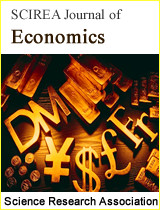THE ROLE OF UNIVERSITY AND BUSINESS LINKAGES IN FOSTERING LIFELONG LEARNING OF THE COMMUNITY
DOI: 10.54647/economics79256 89 Downloads 16057 Views
Author(s)
Abstract
Knowledge is infinity that no matter how much a person learns, it will never be enough. However, it is through lifelong learning, a human can acquire the valuable asset of knowledge. This paper explores the role of university-business linkage in fostering the lifelong learning of the community. By collecting data through survey, using descriptive statistics and regression model for analysis, the research observes a positive effect of university-business linkage and the lifelong learning’s standpoint on the community's lifelong learning abilities. This positive relationship implies the need to extend the university-business cooperation and to shape an appropriate standpoint about lifelong learning that will help the community stay competitive in the workplace, engage in community civic life, enrich and fulfill personal life.
Keywords
university and business linkage, university and business cooperation, lifelong learning, community
Cite this paper
Le Thai Phong, Nguyen Thu Thuy, Nguyen Thi Hanh, Vu Thi Kim Oanh, Dang Kim Thinh,
THE ROLE OF UNIVERSITY AND BUSINESS LINKAGES IN FOSTERING LIFELONG LEARNING OF THE COMMUNITY
, SCIREA Journal of Economics.
Volume 6, Issue 3, June 2021 | PP. 52-70.
10.54647/economics79256
References
| [ 1 ] | Alpert, F., Heaney, J.-G. and Kuhn, K.-A. (2009), “Internships in marketing: goals, structures and assessment – student, company and academic perspectives”, Australasian Marketing Journal, Vol. 17 No. 1, pp. 36-45. |
| [ 2 ] | Ankrah, S.N., Burgess, T.F., Grimshaw, P. and Shaw, N.E. (2013), “Asking both university and industry actors about their engagement in knowledge transfer. What single-group studies of motives omit”, Technovation, Vol. 22 No. 2013, pp. 50-65. |
| [ 3 ] | Ayarkwa, J., Adinyira, E. and Osei-Asibey, D. (2012), “Industrial training of construction students: perceptions of training organizations in Ghana”, Education and Training, Vol. 54 Nos 2/3, pp. 234-249. |
| [ 4 ] | Brimble, P. and Doner, R.F. (2007), “University-industry linkages and economic development: the case of Thailand”, World Development, Vol. 35 No. 6, pp. 1021-1036. |
| [ 5 ] | Camacho, D.J. and Legare, J.M., 2016. Shifting gears in the classroom—movement toward personalized learning and competency‐based education. The Journal of Competency‐Based Education, 1(4), pp.151-156. |
| [ 6 ] | Coleman, John (2017) “Lifelong Learning Is Good for Your Health, Your Wallet, and Your Social Life”, Harvard Business Review, 7 February. Available at: https://hbr.org/2017/02/lifelong-learning-is-good-for-your-health-your-wallet-and-your-social-life (Accessed: 9 June 2021) |
| [ 7 ] | Dinevski, D. & Dinevski, I. V. (2004). The concepts of university lifelong learning provision in Europe. Transition Studies Review, 11(3), 227-235. |
| [ 8 ] | European Commission (2007). Lifelong Learning Programme. Retrieved 2011 Nov.15, from: http://ec.europa.eu/education/programmes/llp/index_en.html. |
| [ 9 ] | Goosen, M.F.A., Al-Hinai, H. and Sablani, S. (2001), “Capacity-building strategies for desalination: activities, facilities and educational programs in Oman”, Desalination, Vol. 14 No. 1, pp. 181-189. |
| [ 10 ] | Hamdan, H., Yousef, F., Abdullah, F., Nasruding, N. and Abullah, I.C. (2011), “University industrial linkages: relationship towards economic growth and development in Malaysia”, World Academy of Science, Engineering and Technology, Vol. 5 No. 10, pp. 785-792. |
| [ 11 ] | Hürsen, Ç. (2011). Öğretmenlerin Yaşam Boyu Öğrenme Yaklaşımına Yönelik Görüş, Tutum ve Yeterlik Algılarının Değerlendirilmesi. DoktoraTezi, Yakın Doğu Üniversitesi, Eğitim Bilimleri Enstitüsü, Lefkoşa. |
| [ 12 ] | Intarakumnerd, P. and Schiller, D., 2009. University-industry linkages in Thailand: Successes, failures, and lessons learned for other developing countries. |
| [ 13 ] | Ishengoma, E. and Vaaland, T.I. (2016), "Can university-industry linkages stimulate student employability?", Education + Training, Vol. 58 No. 1, pp. 18-44. https://doi.org/10.1108/ET-11-2014-0137 |
| [ 14 ] | Kaplan, A., 2017. Lifelong learning: conclusions from a literature review. International Online Journal of Primary Education (IOJPE) ISSN: 1300-915X, 5(2). |
| [ 15 ] | Karaman, B. (2012). Yaşam boyu öğrenme bağlamında, ülkemiz milli eğitim sisteminde yeralan sanat eğitimcilerinin mesleki gelişimolanakları. Yüksek Lisans Tezi, Ondokuz Mayıs Üniversitesi, Eğitim Bilimleri Enstitüsü Güzel Sanatlar Eğitimi Anabilim Dalı, Samsun. |
| [ 16 ] | Laal, M. and Salamati, P., 2012. Lifelong learning; why do we need it?. Procedia-Social and Behavioral Sciences, 31, pp.399-403. |
| [ 17 ] | Ly, Pham (2016) “University Business Cooperation - UBC”, Nha Trang University, 1 March. Available at: http://pdtsaudaihoc.ntu.edu.vn/bai-viet-chon-loc/n/ve-quan-he-hop-tac-giua-nha-truong-va-doanh-nghiep (Accessed: 9 June 2021) |
| [ 18 ] | Oyebisi et al. (1996). Industry-academic relations: an assessment of the linkages between a university and some enterprises in Nigeria. Technovation, 16(4), 203-209. |
| [ 19 ] | Oyebisi, T.O., Ilori, M.O. and Nassar, M.L. (1996), “Industry-academic relations: an assessment of the linkages between a university and some enterprises in Nigeria”, Technovation, Vol. 16 No. 4, pp. 203-209. |
| [ 20 ] | Razvan, Z. & Dainora, G. (2009), challenges and opportunities faced by entrepreneurial university. Some lesson from Romania and Lithuania, Available at https://www.researchgate.net/publication/46533492_Challenges_And_Opportunities_Faced_By_Entrepreneurial_University_Some_Lessons_From_Romania_And_Lithuania/link/024c38fb0cf29c215b6ab566/download |
| [ 21 ] | Smith, M. K. (2001). Lifelong Learning, the Encyclopaedias of Informal Education. http://www.infed.org/lifelonglearning/blife.htm. (17.12.2014) |
| [ 22 ] | Suraweera, F. (1985), “A framework for university-industry interaction in computing in developing countries”, Computer Education, Vol. 9 No. 2, pp. 135-139. |
| [ 23 ] | Vega-Jurando, J., Fernández-de-Lucio, I. and Huanca, R. (2008), “University-industry relations in Bolivia: implications for university transformations in Latin America”, Higher Education, Vol. 56 No. 2, pp. 205-220. |
| [ 24 ] | World Bank (2003). Lifelong Learning in the Global Knowledge Economy: Challenges for Developing Countries. http://siteresources.worldbank.org/INTLL/Resources/Lifelong-Learning-in-the-Global-KnowledgeEconomy/lifelonglearning_GKE.pdf (21.14.2014) |
| [ 25 ] | Župarić, Josip (2009) “The Role of Universities in Promoting Lifelong Learning: European Experience and Croatian Perspective”, Interdisciplinary Management Research. Available at: https://core.ac.uk/download/pdf/6255799.pdf (Accessed: 9 June 2021) |

